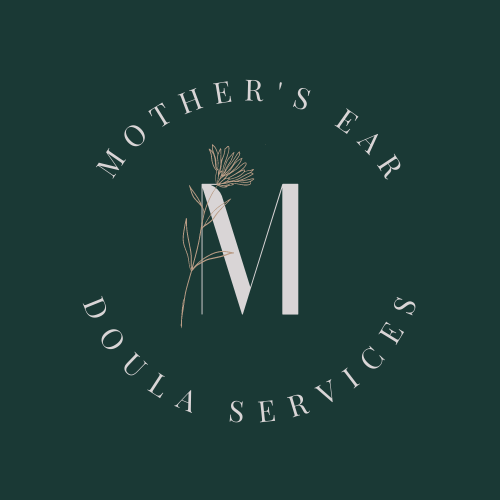25. 5 Reasons It’s Okay to Be Both Grateful and Grieving After the NICU
Can you be grateful and grieving at the same time?
Spoiler: Yes. A thousand times yes.
If you’ve walked the wild, weary path of the NICU, you already know this: the emotions don’t arrive in a neat, color-coded lineup. It’s not “first, we panic—then we power through—then we celebrate.” Nope. It’s “I’m so thankful they’re okay” and “I’m so mad I missed their first bath” in the exact same breath.
You might be bursting with gratitude for the care team who saved your baby’s life and quietly mourning that it wasn’t your arms they were in for their first bottle. Maybe you’re sharing a “we made it!” post while choking back tears over everything you had to survive to get there. Maybe someone told you NICU firsts don’t count—and maybe you wanted to scream.
You’re allowed to talk about the good, the bad, and the ugly of your experience. Yes, even publicly. Even if someone thinks you’re “dwelling.” Gratitude for the staff can live right next to the pain of missing what you were supposed to have. That’s not bitterness. That’s truth.
Let’s say it together: You can be grateful and grieving.
Here’s why that’s not only okay—but healthy.
1. The NICU Was a Trauma, Not a Thank-You Note
Yes, you’re grateful. Of course you are. But you’re also grieving. Because the NICU was a whole traumatic situation wrapped in sterile sheets and medical jargon.
You didn’t get to hold your baby right after birth.
You learned how to parent through glass.
You spent weeks (or months) decoding monitors like it was your job.
Just because something ends in survival doesn’t mean it wasn’t traumatic. Gratitude doesn’t cancel out grief—it just makes it harder to admit out loud. So let’s say it together: I’m allowed to feel devastated about what I missed.
Permission granted. No guilt required.
2. You’re Not “Ungrateful”—You’re Processing a Life-Altering Experience
People love to say, “Well, at least they’re healthy now!”
Cool. And?
You’re still mentally replaying every alarm, every time you had to leave without your baby, every conversation where you didn’t feel like you had a voice. Gratitude isn’t a cure for those memories. It’s just one part of a complicated emotional cocktail you didn’t order.
Grieving after the NICU doesn’t mean you’re stuck in the past. It means your nervous system is still trying to understand what just happened. And spoiler: that takes time.
You’re not ungrateful. You’re human.
3. Holding Both Emotions is Actually a Sign of Strength
Newsflash: It’s not a weakness to feel multiple things at once. It’s emotional depth. It’s growth. It’s the mental gymnastics you didn’t sign up for—but nailed anyway.
You can:
Cry about the feeding tube and smile when they take their first bite of solids.
Feel heartache for the days you missed and pride for how far they’ve come.
Be grateful for the nurses and still wish you never had to meet them.
Holding joy and sorrow in the same breath? That’s not confusing. That’s motherhood. Especially after the NICU.
4. Grief Isn’t Just for Loss—It’s for What Could’ve Been
Maybe you didn’t lose your baby. But you did lose something:
The birth you hoped for
The first cuddle you imagined
The baby shower you canceled
The maternity leave that turned into hospital visits
This is what we call ambiguous grief. It’s the grief of the invisible things—the dreams, the plans, the “normal” you thought you’d have. And grieving your NICU experience is valid, even if everyone around you says “it could’ve been worse.”
(Also? Who decided moms only get to grieve when things are worst-case scenario? Let’s retire that nonsense.)
5. Talking About the Hard Stuff Helps You Heal (and Helps Others Too)
Here’s the thing: silence doesn’t make the pain go away. It just isolates you. And you’ve been isolated enough.
When you talk about what you’ve been through—when you allow yourself to process your grief after the NICU—you make space for healing. Not just for you, but for every other mom who’s afraid to admit that they’re still not okay.
And yes, that includes posting about the good, the bad, and the ugly of your NICU experience. You can absolutely be grateful for the staff who helped your baby survive and still be gutted that you missed their first bath. Or that a nurse gave them their first bottle. Or that someone said, “NICU firsts don’t count,” when they absolutely did to you.
You don’t have to be the poster mom for NICU strength. You get to be real. Messy. Still healing. Still figuring it out.
And you never know who needs to hear, “Me too.”
TL;DR – Here’s What You’re Allowed to Do:
Feel thankful and still cry
Say you’re struggling without explaining it away
Be mad at the experience while loving the outcome
Grieve for what you didn’t get, even when you got the baby
Talk about it without apologizing
You don’t have to “choose” between grateful and grieving. This isn’t an emotional tug-of-war. It’s a balancing act—and you’re doing better than you think.
Ready to Take Charge of Your NICU Journey?
You don’t have to navigate the NICU alone—or feel powerless. I created a free guide packed with my top 7 Tips for NICU Advocacy to help you feel confident, informed, and heard every step of the way.
Because your voice matters—and you deserve to be your baby’s fiercest champion.
Your Turn:
Have you ever felt stuck between feeling grateful and grieving after the NICU? What helped you feel seen and supported? Drop your thoughts in the comments—I read every one. 💛
